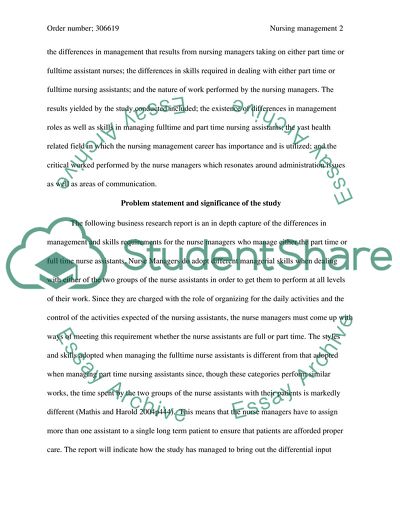Cite this document
(Dynamics in the Management Expectations of the Nurse Managers Research Proposal, n.d.)
Dynamics in the Management Expectations of the Nurse Managers Research Proposal. Retrieved from https://studentshare.org/nursing/1555858-is-the-work-performance-of-registered-nurses-who-are-actively-engaged-in-the-leading-and-managing-of-their-techs-certified-nurses-assistant-better-than-those-nurses-who-are-partially-involved
Dynamics in the Management Expectations of the Nurse Managers Research Proposal. Retrieved from https://studentshare.org/nursing/1555858-is-the-work-performance-of-registered-nurses-who-are-actively-engaged-in-the-leading-and-managing-of-their-techs-certified-nurses-assistant-better-than-those-nurses-who-are-partially-involved
(Dynamics in the Management Expectations of the Nurse Managers Research Proposal)
Dynamics in the Management Expectations of the Nurse Managers Research Proposal. https://studentshare.org/nursing/1555858-is-the-work-performance-of-registered-nurses-who-are-actively-engaged-in-the-leading-and-managing-of-their-techs-certified-nurses-assistant-better-than-those-nurses-who-are-partially-involved.
Dynamics in the Management Expectations of the Nurse Managers Research Proposal. https://studentshare.org/nursing/1555858-is-the-work-performance-of-registered-nurses-who-are-actively-engaged-in-the-leading-and-managing-of-their-techs-certified-nurses-assistant-better-than-those-nurses-who-are-partially-involved.
“Dynamics in the Management Expectations of the Nurse Managers Research Proposal”, n.d. https://studentshare.org/nursing/1555858-is-the-work-performance-of-registered-nurses-who-are-actively-engaged-in-the-leading-and-managing-of-their-techs-certified-nurses-assistant-better-than-those-nurses-who-are-partially-involved.


